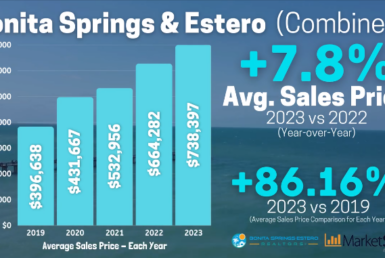New Buyers? Check this out!

This will take you through every step in the buying process, for a new home buyer. We get a lot of questions about exactly what the full process looks like. Many new home buyers are scared (I know I was when I purchased my first home) as the process seems daunting, complicated, and obviously it’s the largest purchase most of us will make! Don’t worry, the process is fairly simple, and I’ll be there helping to guide and move us through all of these steps.
Initial Consult
Sit down and discuss exactly what you are looking for this can be over the phone, via video chat, or in person. This is part art, part science – getting inside your head to understand your exact needs, understanding your circumstances (financial, home life, family plans, and more). I combine both exactly what you are looking for, with my experience and your future plans to provide you suggestions.
Generally, I’m able to meet with new clients within 24-48 hours of you reaching out.
- Setup Backend System – I use my website as my tool to manage clients, this allows me to set you up with e-alerts when properties that meet your criteria hit the market, so that we can move quickly when the time comes. I encourage clients throughout this process to continual use Knowledgebasefl.com your primary search tool to find properties, as we have the most up to date information from the MLS (home listing service that all realtors use.
Financing
No matter what you’re doing, where you are, we must setup financing immediately. Whether you already have financing with your preferred bank, are paying cash, or aren’t sure where to begin with this – me and my team can help. I have a network of mortgage brokers and lenders who you can work with to guide you during the process.
Right now, based on historically low interest rates for mortgages, most of my clients are opting to take out a 15- or 30-year fixed rate mortgage for their first home. This process is pretty simple, and involves either working with your bank, or my financial network, applying for a loan, and getting a pre-approval letter. Similar to the process of buying a car – a pre-approval letter authorizes you to spend up to a certain dollar amount – and is included in our offers when it comes time to make one. Without this step we can not and should not move on to any steps as I often see deals fall through when this isn’t setup and we need to wait to get it done. Additionally, with the speed of today’s market, as well as the limited inventory, we can not keep sellers waiting or do financing contingencies. Your bank, or my mortgage partners will advise you on specifics as far as what kinds of products work best for you, but new home buyers have options for little or no money down mortgages, which help ease the burden – and provide a great safety net – for you to not have to fully part with your cash for a down payment.
The financing part of the new home buyer process generally takes from 2-6 weeks depending on the institutions involved and your unique situation.
Although the current market has had stories about only deals going through that are all cash and 20%+ over asking price, this isn’t always the case. I’m continually helping clients get into new home, under ask, with financing. I hate to see clients find a home they love, make an offer, only to have it rejected. That’s why having the financing up front is going to be the most important component to getting the home you want.
One final thing to keep in mind – during the course of the offer/acceptance period we will be making an escrow payment to the seller as a sign of good faith, so in addition
Tips – I’m not a financial advisor, but having worked on hundreds of homes over the years here are some basic tips to consider prior to starting this process:
- Play the credit game – the higher your credit score, the lower your rates are going to be, and the less you’ll pay. Taking a few months to a year to improve your credit, can save you tens of thousands or more on future interest payments.
- Keep your financial information organized, on a computer, or files at home – this will make going through the process of applying for a loan lightening fast. Items include old tax returns, w2s, etc.
- Shop around – different banks offer different rates, and tiny changes in interest rate means large long-term savings. Saving ONLY 0.2% interest on your loan will mean nearly $10,000 saved on interest for a 30 year mortgage on a $200,000 loan!
- Have your future down payment and escrow amount ready and easy to access (if possible) to make the process simple and move quickly through steps. Sometimes clients have to liquidate assets to get to cash and it can slow things down or cause problems in a deal.
- If paying cash, take a screenshot of your bank account (proof of funds) and have ready for when we begin making offers.
- Consider having enough money on hand to do a few inspections. Not every home is going to be perfect, or every seller cooperative with meaningful repairs/reimbursements based on condition. Having enough money for 2 or 3 inspections on hand (generally $500 each) will help us maintain flexibility and not have to stick with the first home we make an offer on.
- Appraisals – New home buyers that are financing need to keep in mind that appraisals (the amount the bank believes the home is worth) are currently coming in UNDER market. This means many loans won’t fully cover the cost of a home. I will help guide you through this, but should be something we address up front, so that you can keep extra cash in your pocket to pay the difference, rather than then a hefty down payment that ensures you don’t get the home you really want.
Finding Properties
After we have met, discussed your needs, and you have financing squared away, now’s the most exciting part – finding properties. The most helpful tool is going to be my website, as it is updated with all of the latest MLS information. You will also be receiving emails (typically daily) of new homes that match your criteria. I ask that clients review these, and login to the website and continually search for any homes they may like. When ready you can call, text, or use the website’s onscreen steps to setup a time to view a property together.
In the background I am also actively searching, and am constantly communicating with my vendor, partner, and realtor network to learn of new homes that haven’t yet hit the MLS, are off market, or to work with buyers that are looking to sell – so I will communicate about these deals from time-to-time.
For the actual viewings we simply meet at the property and review together. This process again allows me to learn more about you and your needs, as we walk through a view homes, I gain a sense of more details that you’re looking for and can refine our search.
The whole home search process is generally taking between 60-90 days right now.
Tips:
- Review my daily home e-alerts. Yes, they can get cumbersome, but they’re updates on the market and properties.
- Schedule a time weekly to go through properties on KevinWBartlett.com
- If anything changes during the buying process (you realize you need something for example) make sure to let me know ASAP
The Offer
Once we have found the perfect home, next is time to make an offer. The technical process is simple. You tell me you like a home, we have a quick chat about strategy (I’ll make a suggestion as to where to make the offer so that we strike the right balance between maximizing our chances of getting accepted, but at the lowest amount possible). At this point, if you haven’t already provided I will definitely need proof of funds and/or a pre-approval letter to send along with the offer.
From there I will draft a contract which outlines the basics of our offer including purchase price, escrow amount, and the number of days we have to review, inspect, and bring everything to a close. I will send this via email, and you can sign electronically. Typically, it takes an hour or two to put the contract together from the moment you say GO!
Once that’s signed, I then forward to the seller’s agent – who then presents it to their client. Generally, this next process takes about 24 hours to see a response. That response is either an acceptance, rejection, or negotiation (different terms, days, price, etc.). At that point we will communicate and work together on next steps. Once a FINAL agreement is settled upon – both parties have signed the agreement – we are off to the races.
Keep in mind – the offer, particularly as a part of residential real estate – heavily protects you, the buyer (with some exceptions in rare circumstances). If at anytime you’d like to back out, you can. It generally ties up the seller and removes the property from the market – helping us to secure the home, and allowing us time to do our due diligence.
Once an offer is accepted, both agents (on your side, and the seller’s side) begin working with the title company to set up title work on the property. Title work involves reviewing any current liens, permitting information, and handles the escrow deposits. This is generally in the background, but the title company and I will be working with you in the next steps and at closing.
Tips
- At the time of the offer, things will move much more quickly, make sure you are available via chat/phone to coordinate nuances and changes that happen.
- If we need any special concessions (longer/shorter closing period, special escrow amounts, contingencies, we’ll need to include it in the offer).
- Escrow will be due shortly after the offer is accepted by the seller (generally within 1 week), so have that money ready and in a place that can be easily wired to another bank.
- Not every offer is accepted so brace yourself for some possible rejection.
- With the seller’s market being so hot right now, and with record low inventories, I am seeing a lot of offers being beaten out (an offer may have been accepted just hours before we decide to make an offer for example – but the MLS hasn’t yet updated to pending). Some clients are choosing to forgo seeing homes in person, and pulling the trigger based on images/video tours available online. This is a great strategy if you’re flexible and have some money/time to commit to the process.
Due Diligence Period
The due diligence period is our time to really inspect every aspect of the house, get anything that might need repairs down, and finalize full negotiations in order to fully close or walk-away.
In Florida, most closings occur within 30 to 45 days of going to contract. This can vary greatly, however, depending on specific circumstances. The default amount in the standard contracts is 15 days. So, in the next 2 weeks, following the accepted offer by the seller, we need to move quickly and arrange to have a home inspector come out and inspect the home.
If there are specialty items you would like inspected, review of those items must be arranged as well. I will help guide on this and have a network of home inspectors that are fantastic at what they do. I will help arrange an inspection, and let them in. At the close of the inspection, they provide us both with a detailed report on everything in the home. At this point it is best to schedule any additional or specialty inspections.
Tips:
- Nothing is really a “problem” – during due diligence you get to fully understand the property. Even repairs are opportunities to either save money, or have the seller handle the issues. Keep in mind some problems might be harder to deal with when moved in though.
- If anything doesn’t get addressed/repaired during this time that you want or need handled, I have a network of contractors, repair, and remodeling companies that will do an excellent job and get the home exactly where you’d like post-closing.
- The inspectors’ report makes a great “honey-do” list post-closing for all those tiny little items that might need very minor updates/repairs.
- Repairs are different than remodeling – our job is to point out the items that are currently defective during this stage.
- I see roughly 97% of homes close from this point forward.
Closing
Closing is the signing of all of your paperwork putting the home in your name and finalizing the documentation with the bank. This is generally a simple, straightforward process, but does involve a lot of documentation (particularly if you’re taking out a loan). At closing we review your balance sheet – which covers the purchase price, loan amount, escrow deposit, considerations for repairs/damages (if applicable) and both agents’ commissions as well as any other misc. line items.
Your closing generally happens at the title company, who will have an on-staff notary that will notarize the documents as you sign them.
Tips:
- At closing all items will be handed over (keys, garage door opener, etc.)
- You can read sample closing documents if you’d like, to prepare you. There is a lot to read!
- Post-closing immediately contact the power and water companies, to have those services switched into your name. I have all local service contact information and can assist here as well.
Move In! And that’s it, much simpler than most people realize, often involving just slightly more time/effort than if you’ve ever rented an apartment.





Join The Discussion